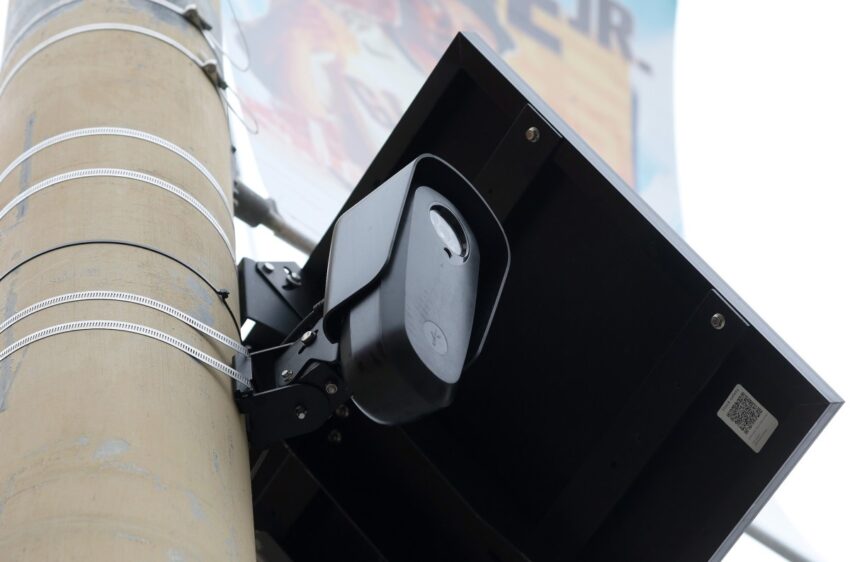
lawmakers say stolen police logins are exposing Recent revelations indicate that a significant number of law enforcement agencies may be vulnerable to cyberattacks due to inadequate security measures surrounding their use of surveillance technology.
lawmakers say stolen police logins are exposing
Background on Flock’s Surveillance Technology
Flock Safety, a company specializing in automated license plate recognition (ALPR) cameras, has gained traction among law enforcement agencies across the United States. These cameras are designed to assist police in tracking vehicles and solving crimes by capturing license plate information and providing real-time alerts. The technology has been lauded for its potential to enhance public safety and streamline investigative processes.
However, the increasing reliance on such technology raises critical questions about data security and privacy. As law enforcement agencies adopt these systems, the importance of safeguarding sensitive information becomes paramount. The recent findings regarding the lack of multi-factor authentication (MFA) among some users highlight a significant vulnerability in the security framework surrounding these surveillance tools.
Vulnerability Due to Lack of Multi-Factor Authentication
According to Flock, approximately 3% of its law enforcement customers do not utilize multi-factor authentication. This statistic translates to dozens of law enforcement agency accounts that could be at risk of compromise. Multi-factor authentication is a security measure that requires users to provide two or more verification factors to gain access to an account, thereby significantly reducing the likelihood of unauthorized access.
The absence of MFA in these accounts poses a serious threat, as it allows potential hackers to exploit stolen login credentials more easily. Given the sensitive nature of the data handled by law enforcement agencies, including personal information and ongoing investigations, the implications of such vulnerabilities are profound.
Implications for Law Enforcement and Public Safety
The potential for compromised accounts raises serious concerns about public safety and the integrity of law enforcement operations. If hackers gain access to surveillance systems, they could manipulate or misuse the data collected by Flock’s cameras. This could lead to wrongful arrests, privacy violations, and a general erosion of public trust in law enforcement agencies.
Moreover, the ramifications extend beyond individual agencies. A breach in one jurisdiction could have cascading effects, undermining collaborative efforts between law enforcement agencies. For instance, if sensitive data is leaked or manipulated, it could jeopardize ongoing investigations or lead to the wrongful prosecution of innocent individuals.
Stakeholder Reactions
The revelation of these vulnerabilities has prompted reactions from various stakeholders, including lawmakers, cybersecurity experts, and civil rights advocates. Lawmakers have expressed alarm over the potential risks associated with the lack of MFA among law enforcement agencies. They argue that the security of surveillance technology must be prioritized to protect both officers and the public.
Lawmakers’ Concerns
In light of these findings, several lawmakers have called for immediate action to address the security gaps in the use of surveillance technology. They emphasize the need for comprehensive cybersecurity training for law enforcement personnel, as well as the implementation of robust security protocols, including mandatory multi-factor authentication.
One lawmaker stated, “It is unacceptable that our law enforcement agencies are operating without adequate security measures. The potential for hackers to exploit these vulnerabilities puts both officers and the communities they serve at risk.” This sentiment reflects a growing consensus among policymakers that cybersecurity must be treated as a critical component of law enforcement operations.
Cybersecurity Experts Weigh In
Cybersecurity experts have also weighed in on the issue, highlighting the importance of proactive measures to safeguard sensitive data. They stress that the adoption of multi-factor authentication is a fundamental step that all organizations, particularly those handling sensitive information, should take.
Experts suggest that law enforcement agencies should not only implement MFA but also conduct regular security audits and training sessions to ensure that personnel are aware of the latest cybersecurity threats. “Cybersecurity is an ongoing battle,” one expert noted. “It’s not enough to implement a single solution; agencies must remain vigilant and adaptive to emerging threats.”
Broader Context of Surveillance Technology and Cybersecurity
The concerns surrounding Flock’s surveillance technology are part of a broader conversation about the intersection of technology, privacy, and security. As surveillance systems become more sophisticated, the potential for misuse and abuse increases. The balance between enhancing public safety and protecting individual rights is a delicate one that requires careful consideration.
As law enforcement agencies continue to adopt advanced technologies, the need for robust cybersecurity measures becomes increasingly critical. The integration of technology into policing practices must be accompanied by a commitment to ethical standards and accountability. This includes ensuring that the data collected is used responsibly and that adequate safeguards are in place to protect it from unauthorized access.
Public Trust and Accountability
Public trust in law enforcement is essential for effective policing. When citizens believe that their data is secure and that law enforcement agencies are acting responsibly, they are more likely to cooperate with investigations and support community safety initiatives. Conversely, incidents of data breaches or misuse can lead to a breakdown in trust, making it more challenging for law enforcement to carry out their duties effectively.
Transparency and accountability are crucial in maintaining this trust. Law enforcement agencies must be open about their use of surveillance technology and the measures they are taking to protect sensitive data. This includes communicating with the public about potential risks and how they are being mitigated.
Future Directions for Law Enforcement Technology
As the landscape of law enforcement technology continues to evolve, it is imperative that agencies prioritize cybersecurity. The adoption of multi-factor authentication is just one step in a larger strategy to enhance security. Agencies must also consider implementing other best practices, such as encryption, regular software updates, and employee training programs.
Furthermore, collaboration between law enforcement agencies and cybersecurity experts can lead to the development of tailored solutions that address the unique challenges faced by law enforcement in the digital age. By working together, these stakeholders can create a more secure environment for both officers and the communities they serve.
Legislative Action and Policy Development
In response to the identified vulnerabilities, lawmakers may consider introducing legislation aimed at strengthening cybersecurity protocols for law enforcement agencies. Such measures could include mandates for multi-factor authentication, regular security assessments, and funding for cybersecurity training programs.
Additionally, policymakers could explore the establishment of a national framework for cybersecurity in law enforcement, providing guidelines and resources to help agencies implement effective security measures. This could foster a culture of accountability and vigilance, ensuring that law enforcement agencies are well-equipped to handle the challenges posed by cyber threats.
Conclusion
The recent findings regarding the lack of multi-factor authentication among some law enforcement agencies using Flock’s surveillance technology underscore the urgent need for enhanced cybersecurity measures. As technology continues to play a pivotal role in policing, the importance of safeguarding sensitive data cannot be overstated. Stakeholders across the spectrum must work together to address these vulnerabilities, ensuring that law enforcement agencies can operate securely and effectively in an increasingly digital world.
Source: Original report
Was this helpful?
Last Modified: November 4, 2025 at 7:41 am
2 views















